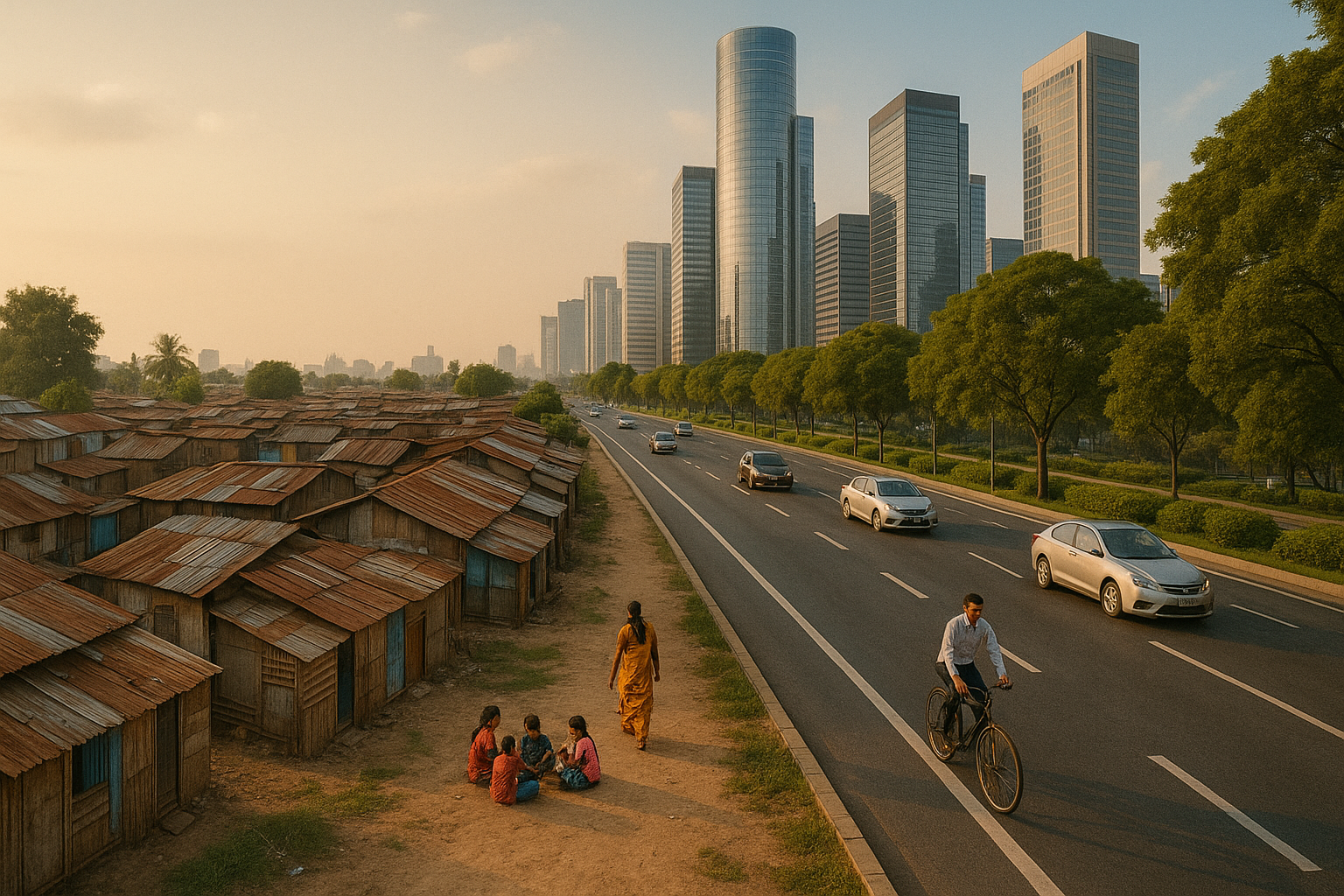Reimagining Public Spending for Inclusive Growth in the Eastern and Western Pacific
The report by the World Bank, ADB, and Pacific Islands Forum Secretariat urges governments in the Eastern and Western Pacific to redesign public spending to promote equity, transparency, and resilience. It emphasizes investing in human capital, gender inclusion, and local infrastructure as the keys to sustainable and inclusive growth.

The report "Public Spending and Inclusive Growth in the Eastern and Western Pacific (EWP-815)", prepared by the World Bank, the Asian Development Bank (ADB), and the Pacific Islands Forum Secretariat, provides a sweeping analysis of how fiscal policy can bridge inequality and promote equitable development across the region. Despite remarkable GDP growth in recent decades, the report finds that the benefits have been unevenly distributed, leaving behind large sections of rural populations, informal workers, and women. It argues that public spending, when used efficiently, can become a transformative instrument for inclusive growth. Yet, fiscal priorities remain skewed toward politically influential regions and short-term goals, weakening the developmental impact of government budgets.
The Geography of Inequality
Since the Asian Financial Crisis, many Pacific and East Asian countries have expanded their public budgets, particularly in health and education. However, the results have been disappointing due to persistent inefficiencies and imbalanced allocations. Maps and comparative tables in the report reveal a recurring pattern: cities like Jakarta, Manila, and Kuala Lumpur continue to receive disproportionate infrastructure investment, while peripheral areas such as eastern Indonesia, Mindanao, and remote Pacific islands remain underdeveloped. Even in high-performing economies like Malaysia, the benefits of public spending fail to reach indigenous or inland communities. The study warns that such fiscal centralization not only fuels inequality but also undermines national unity and trust in public institutions.
Human Capital as the Great Equalizer
Education and health are identified as the twin engines of inclusive growth. The report shows that nations with steady and well-targeted education budgets, particularly Vietnam, achieve stronger social mobility and workforce readiness. In contrast, inconsistent funding patterns elsewhere perpetuate low learning outcomes and high dropout rates. In healthcare, countries like Thailand and Fiji have made impressive strides toward universal coverage, but millions in poorer nations still face catastrophic out-of-pocket costs. Many Pacific states remain reliant on donor funding, posing long-term sustainability challenges. The authors stress that investment in teachers, community health systems, and digital learning tools can yield lasting returns that pure infrastructure spending cannot.
Building Infrastructure That Reaches People
Long considered the foundation of growth, infrastructure spending is re-examined through an inclusion lens. The report argues that mega-projects such as urban expressways and rail systems tend to benefit already prosperous regions, widening economic gaps. Instead, "last-mile infrastructure", rural roads, microgrids, and broadband networks, can connect marginalized communities to markets, education, and essential services. A compelling infographic shows that these localized investments generate higher poverty reduction and gender equality outcomes than large-scale projects. The authors highlight emerging examples of green and climate-resilient infrastructure from Indonesia and the Philippines that combine environmental protection with social inclusion, though they remain underfunded compared to traditional transport schemes.
Empowering Women and Protecting the Vulnerable
The report dedicates significant space to gender-responsive budgeting, presenting it as both an ethical obligation and a smart economic strategy. Pacific Island case studies show that programs supporting women's entrepreneurship and childcare access have outsized effects on household welfare and local productivity. However, persistent gender gaps in labor participation, wages, and leadership remain barriers to equality. Expanding social protection, through digital cash transfers, integrated beneficiary systems, and improved targeting, can prevent vulnerable families from falling back into poverty. The authors emphasize that inclusive social policies must be designed to empower, not merely assist, marginalized citizens.
Toward Transparent and Resilient Fiscal Systems
Fiscal transparency and accountability are portrayed as the linchpins of effective governance. The report notes that open-budget systems and participatory planning lead to more efficient and equitable spending outcomes. A comparative chart shows that countries adopting citizen audits and performance-based budgeting tend to achieve better developmental results and lower corruption. Encouraging examples from the Philippines and Timor-Leste demonstrate how local participation in budget decisions fosters public trust. The COVID-19 pandemic, the report adds, was a stress test for public finance. Emergency spending expanded social programs but left many nations burdened with debt. The post-pandemic challenge is to shift from reactive disbursement toward long-term resilience by digitizing fiscal systems, strengthening tax capacity, and integrating sustainability into national budgets.
The report delivers both a warning and a vision. Without reorienting public expenditure toward human capital, local empowerment, and transparency, the region risks entrenching a two-tier economy, modern and prosperous in cities, stagnant and excluded elsewhere. Yet the path forward is clear: balance growth with equity, mainstream gender and climate priorities, and build fiscal systems that serve people rather than politics. The tone is urgent but hopeful, asserting that inclusive public spending is not just a matter of economics; it is the moral foundation for a fair and resilient Pacific century.
- FIRST PUBLISHED IN:
- Devdiscourse
ALSO READ
-
World Bank’s 2024 Liberia Economic Update Urges Shift Toward Inclusive Jobs
-
World Bank’s 2024 Liberia Economic Update Urges Shift Toward Inclusive Jobs
-
World Bank Report Highlights Resilience, Risks, and Reform in Pakistan’s Economy
-
World Bank Backs Kerala's Health Revolution with $400M Boost
-
World Bank Boosts Kerala Health with $280M Loan








